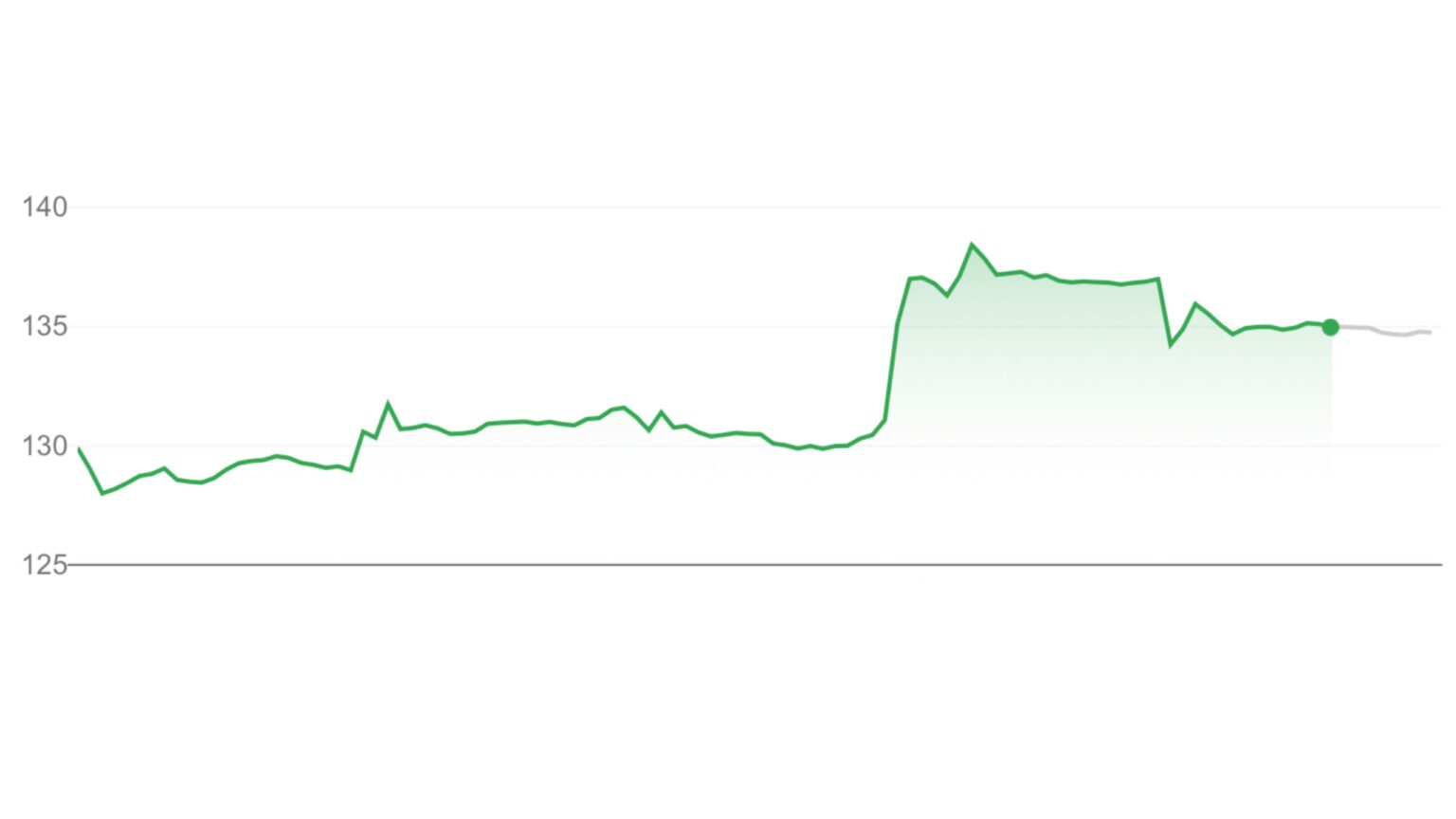In a remarkable surge, Google’s stock prices soared by 5% following the announcement of its latest artificial intelligence breakthrough, Gemini.
This new AI model, poised to rival the offerings from tech moguls such as OpenAI, Microsoft, and Meta, marks an essential point in the evolution of Google’s technological developments. Moreover, the rise in shares reflects investor confidence in Google’s ongoing efforts in the competitive landscape of artificial intelligence technology.
Also read: Elon Musk Launches xAI to Challenge ChatGPT
Wells Fargo and Bank of America weigh-In
Wells Fargo’s trading desk responded positively to the announcement, suggesting that Gemini could silence queries about Google’s standing in AI’s ongoing efforts. They noted the model’s immediate impact, indicating a pre-market increase in Alphabet’s stock, Google’s parent company. However, they posed a crucial question: What will Google’s monetization strategy for Gemini look like? This question encapsulates the broader intrigue about Google’s future in the lucrative AI market.
On the other hand, Bank of America analysts pointed out that Alphabet faced scrutiny over its AI capabilities. They believe a “well-branded,” competitive AI model like Gemini could bolster Google’s consumer search activities and Cloud enterprise sales. Their note further expressed confidence in Google’s AI strengths and suggested that showcasing superior, proprietary AI capabilities could positively influence the company’s shares in the first half of 2024.
“We think Google has strong AI capabilities, and data suggesting that Google has best-in-class, proprietary AI capabilities can be positive for the shares in 1H24.”
While the announcement generated excitement, it remains unclear how Google intends to monetize Gemini across its product range in the long term. Nevertheless, the company revealed plans to license Gemini to customers through Google Cloud later this month. This initial step could be pivotal in determining how Google leverages Gemini’s capabilities to enhance its product offerings and revenue streams.
Google Bard: The First Step in the Gemini Era
The rollout of Gemini coincides with the release of an updated version of Google’s chatbot, Google Bard. Available immediately to English speakers in over 170 territories, including the U.S., Bard is powered by Gemini. This marks the beginning of what Sundar Pichai, Google’s CEO, calls the “Gemini era,” reflecting the company’s aim to integrate Gemini into various products and services in the upcoming months.
“These are the first models of the Gemini era and the first realization of the vision we had when we formed Google DeepMind earlier this year,” Sundar Pichai, Google’s CEO, said.
Gemini, developed since the start of the year, represents a leap in AI technology, offering more accurate responses and closer human-like reasoning in certain situations. This is particularly evident in its superior performance in benchmarks involving diverse fields such as math, physics, history, law, medicine, and ethics. Eli Collins, vice president of products at Google DeepMind, emphasized Gemini’s unparalleled capabilities, surpassing human experts in specific benchmarks.
Versatility and accessibility: the hallmark of Gemini
Gemini is not merely a single AI model but a collection of diverse tools designed for specific applications. The suite includes an “Ultra” version, which reportedly surpasses other models in 30 benchmark tests, encompassing areas like image comprehension and mathematical reasoning.
Additionally, a “Pro” version has been integrated into Google’s Bard and tailored for various tasks. A “Nano” version, crafted explicitly for smartphone use, is set to appear first with the release of Google’s Pixel 8 handset.
This segmentation of Gemini demonstrates Google’s focus on making advanced AI accessible across various platforms and devices. By offering different versions of Gemini, Google aims to permeate different market segments, from high-end computing to everyday smartphone use.









 and then
and then